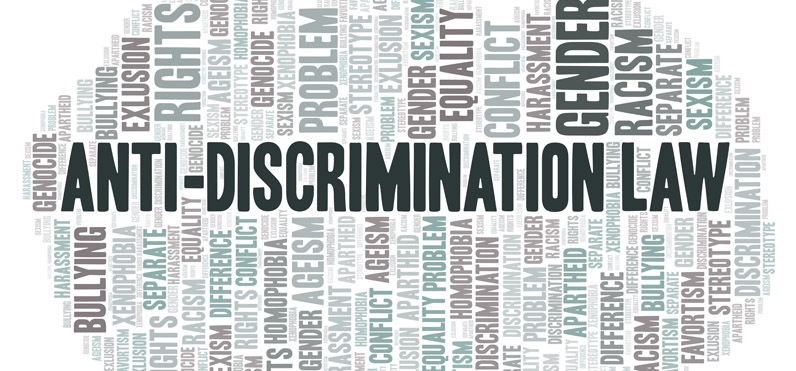Feb 27,2019
As we first alerted our readers last month, the Massachusetts Commission Against Discrimination (MCAD) – which investigates and prosecutes claims of discrimination that occur in housing and employment – has overhauled the procedural rules and regulations (804 CMR 1.00) governing practice before it. The new regulations took effect last month.
Here, we take a deeper dive into some of the changes to help explain what they mean for asserting and defending claims for housing and employment discrimination.
A position statement is not simply admitting or denying the allegations made; it requires significant fact development, through investigation and obtaining statements and affidavits, and crafting legal arguments.
Position Statement Deadline for Dual MCAD/HUD Complaints
In response to a complaint or charge of discrimination, the respondent files a position statement (answer). The MCAD has articulated the deadline to file a position statement to a dual filed complaint (a complaint filed with both the MCAD and HUD) is fourteen days and that it will strictly limit extensions for submissions. In our experience, MCAD investigators have also imposed strict limits on granting extensions in other types of discrimination cases. For these reasons, and particularly if you receive a dual-filed HUD/MCAD complaint, it is important that you notify your insurer (under any applicable D&O policy) and provide a copy of the complaint to your counsel as soon as possible. Your attorney can then determine if there are grounds to dismiss the complaint and, if not, what factual and legal defenses are asserted. A position statement is not simply admitting or denying the allegations made; it requires significant fact development, through investigation and obtaining statements and affidavits, and crafting legal arguments. Quick action will help allow you to build and articulate the strongest defense.
Rebuttal Statement
In the past, rebuttal statements (the complainant’s response to the position statement) have been routinely filed and accepted, but the regulations were silent on the process. The new regulations codify the practice, outlining the form and timing of the submission. While not requiring rebuttal statements, the MCAD strongly encourages their submission and may even request submission. The new regulations make no mention of sur-rebuttal practice; in the past, the MCAD has accepted such submissions and we believe they may have great utility to an investigation where the rebuttal raises new allegations or legal theories.
Deadline to File a Complaint - Equitable Tolling.
The deadline (statute of limitations) for filing a complaint of discrimination with the MCAD under M.G.L. c. 151B is 300 days from the last discriminatory act. The new regulations now expressly give the Investigative Commissioner the discretion to “stop the clock” for filing a claim where the Investigative Commissioner, in their discretion, determines that the complainant is “excusably ignorant of the statutory filing period, or where respondent, the Commission, or a third-party has affirmatively misled the complainant otherwise prevented the complainant from filing.” The MCAD has suggested that such equitable tolling may be appropriate due to age, health or other good cause. The MCAD has applied the doctrine of equitable tolling narrowly in the past – it remains to be seen whether, with the codification under the new regulations, it will be applied differently.
Discovery for Represented Parties
The new regulations expand the scope of discovery that represented parties can take. The new discovery tools are comparable to traditional litigation discovery devices including document requests, interrogatories and (limited) party depositions. This will enable parties to conduct and, to an extent, steer the factual investigation of the claim. The ability to take such discovery can help defending parties expose weaknesses in the complaint and help them better assess the merits and their exposure. In the absence and availability of such discovery, the investigation (led only by the investigators who handle a great volume of cases) may not proceed as quickly and the parties may not be able to have as much of a hand in how it unfolds.
These new discovery procedures are only available when all parties are represented. While it is more common than not for all parties to be represented in employment matters, in housing cases, it is less often the case.
Confidentiality of Settlement Terms.
You may have read or heard a bit lately about confidentiality clauses in settlement agreements reached concerning discrimination and/or harassment claims. When a settlement is reached in the context of a pending MCAD claim, the new regulations give the Investigating Commissioner the discretion to determine whether a settlement should be approved and kept confidential. The Commission may keep the settlement terms confidential at the request of the parties, but do not have to. For employers, it is important to understand that all parties may want to settle and include a confidentiality provision, but the MCAD does not have to accept the settlement (and could initiate its own complaint) or could reject a settlement agreement that includes a confidentiality provision.
Note that in HUD housing complaints that the settlement terms generally may not be kept confidential absent extenuating circumstances (regardless of MCAD policy as there is controlling HUD and FHEO guidance).
Discretionary Stays of Investigation Pending Jurisdictional Challenge
In response to a complaint, the responding party may assert a motion to dismiss on the basis that the MCAD does not have jurisdiction. In other words, for certain reasons, it may be appropriate to assert that the MCAD has no authority to proceed and to hear and rule on the merits of the discrimination complaint. The new regulations give the Investigator Commissioner the discretion to stay the investigation of the merits pending a ruling on the motion to dismiss. The ability to seek (and the Investigator to grant) a stay has real, practical benefit to a party defending a discrimination claim.
If you receive a complaint of discrimination or have questions about how the rule changes may impact your defense of a pending claim, contact us.


